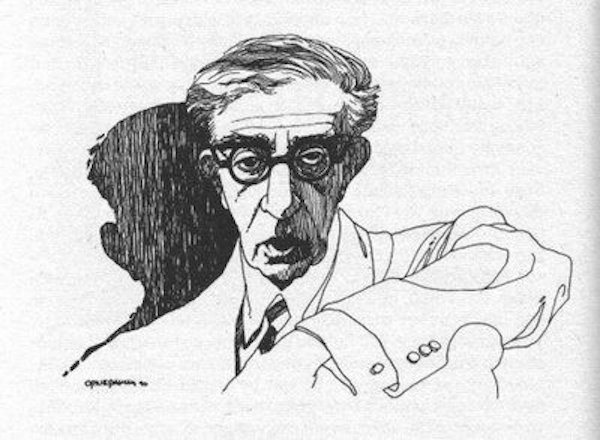Being a gay poet has been a disadvantage in his lifetime: Who is Konstantinos Petrou Kavafis?
The influence of Istanbul has always had an important place in his life, poems, and language. His language of poetry is simple.

Konstantinos Kavafis, one of the most important figures of Greek poetry, was born in Alexandria on April 29, 1863, as the ninth child of a wealthy and well-known Greek family from Istanbul. Therefore, the influence of Istanbul will always occupy an important place in his life, poems, and language.
The family immigrated to London and then to Liverpool in 1872. Here, Kavafis continued his education by analyzing the writings of Shakespeare and Gibbon. When his father's companies collapsed due to the 1876 depression, he returns to Alexandria with his family. Now they start living in an apartment instead of a mansion.
In 1882, when the British occupied Alexandria, Kavafis took refuge in Istanbul with his mother and siblings. His grandfather, George Fotiadis, who lives here, guides him in his literary development and supports him with his biography, which he started to write. 19-year-old Kavafis studied Greek classics and Byzantine historians during his years in Istanbul. He clinches the Fener Greek language, which will always be felt in his poems, with his written language. In the following years, he will say, “The subjects of my poetry, the framework of my art lie in the rough days of my youth.”
Konstantinos Petrou Kavafis (April 29, 1863 – April 29, 1933), known, especially in English, as Constantine P. Cavafy and often published as C. P. Cavafy, was a Greek poet, journalist, and civil servant from Alexandria. His work, as one translator put it, "holds the historical and the erotic in a single embrace."
He collects the money they will get from the insurance company for their house, which was burned due to the bombs, and returns to Alexandria in 1885 with his mother. His brothers have already returned. Kavafis continues his life as an obscure official. He wrote very little at that time and published very little of what he wrote. He lived in Alexandria until his death on April 29, 1933, of throat cancer.
When we look at Kavafis' poetry adventure, it is seen that he matured his poems over time and gave the most competent examples at his most mature age. The language of poetry is simple. The arts of speech are also used as limited as possible, they are extremely meticulous and measured. Kavafis is not exactly a lyric poet, he is also a dramatic poet. The dramatic genre in Kavafis finds itself in the content of the poem, and later in the expression of the inner drama of the poet himself. The language of poetry, on the other hand, is a mixed language that includes some idioms specific to Istanbul among the elements of intellectual language (Byzantine, Alexandria) and daily speech (demotiki).
Kavafis often included historical and mythological events and people in his poems. His main area of interest is the Hellenistic period and the Byzantine period. The poet has built a contemporary world of poetry from historical material and has achieved this in a long process of study, maturation, and mastery of the field.
Kavafis had to anticipate attack moves in love, politics, and artistic understanding and produce weapons accordingly. This may be why he felt the need to constantly hide meaning in his works. But he cares about giving a faithful image of his work. For this reason, he takes care to preserve this image by illuminating the closed parts of his poems with a date, a title, and a new poem when necessary.
It can be said that he has mastered using only the element of history in his poems, just as he has mastered using the element of sexuality, adding this to the texture of his poems as a sensitivity, tension, and a brief reference from time to time. The fact that Kavafis is gay and that his erotic poems deal with homosexual sensibilities and relationships play a decisive role in this. In a biography of Kavafis, it is mentioned that some of his relatives forbade their children to read Uncle Konstantinos' shameful poems.
Although Kavafis wanted to publish his poems, he was rejected by Greek and English publishing houses. Therefore, while he was alive, his poems could not be published in book form. He publishes his poems in newspapers and magazines, then prints his poems separately on file papers, and gives them to those who request them, by collating them. After his death, his 154 poems were published in Alexandria. The same selection was published in Athens in 1948. Kavafis's poems, in fact, have already attracted attention in the literary world while he was still alive. In 1919, some of his poems were translated into English. In 2013, due to the 150th anniversary of his birth, UNESCO declared the World Year of Clairvoyance in Poetry.
